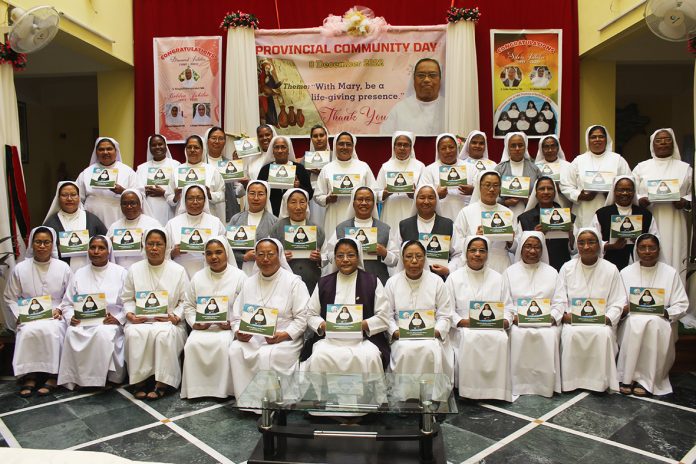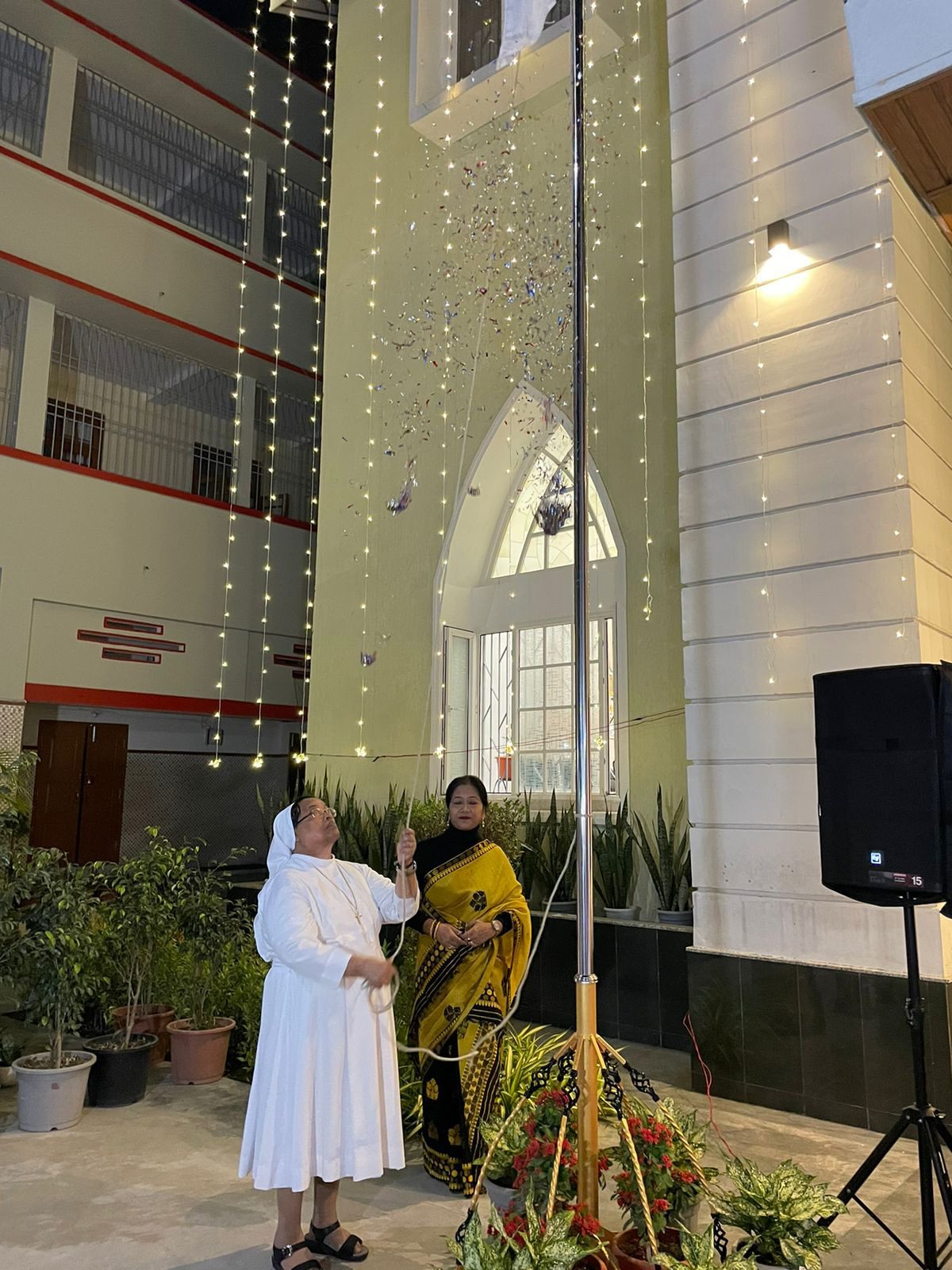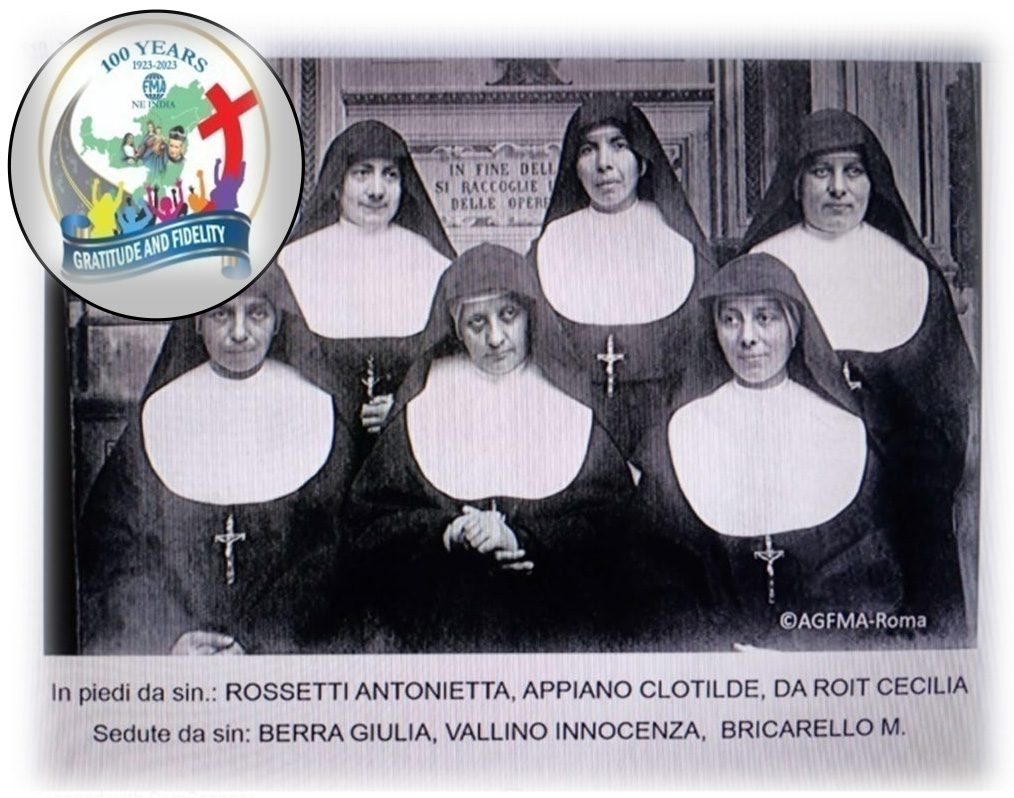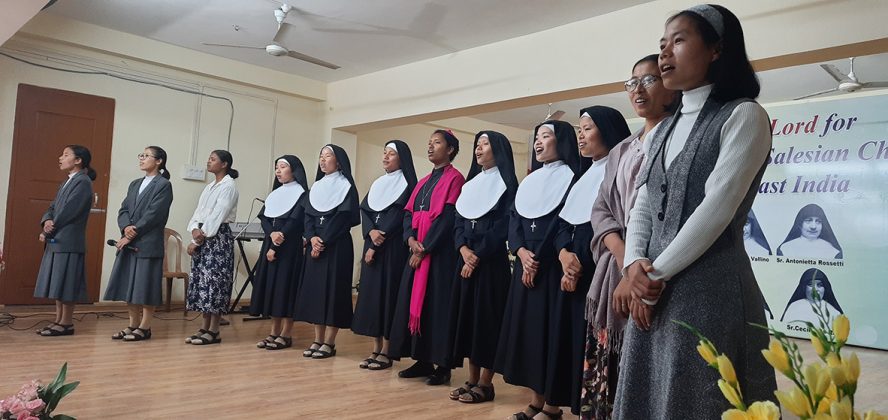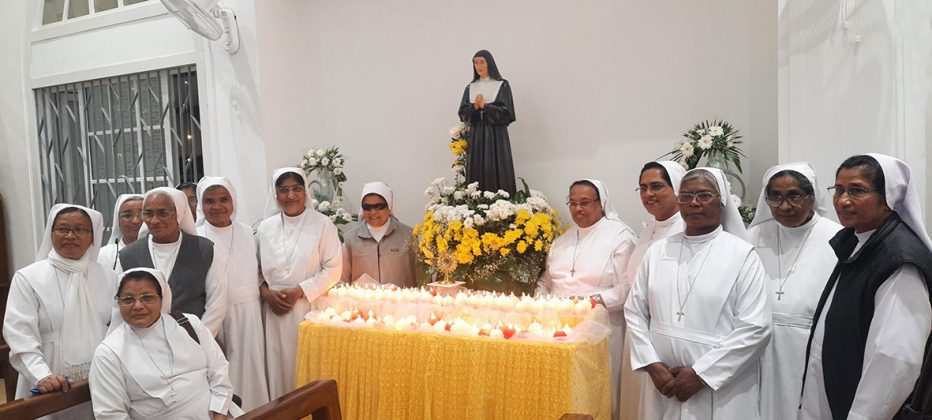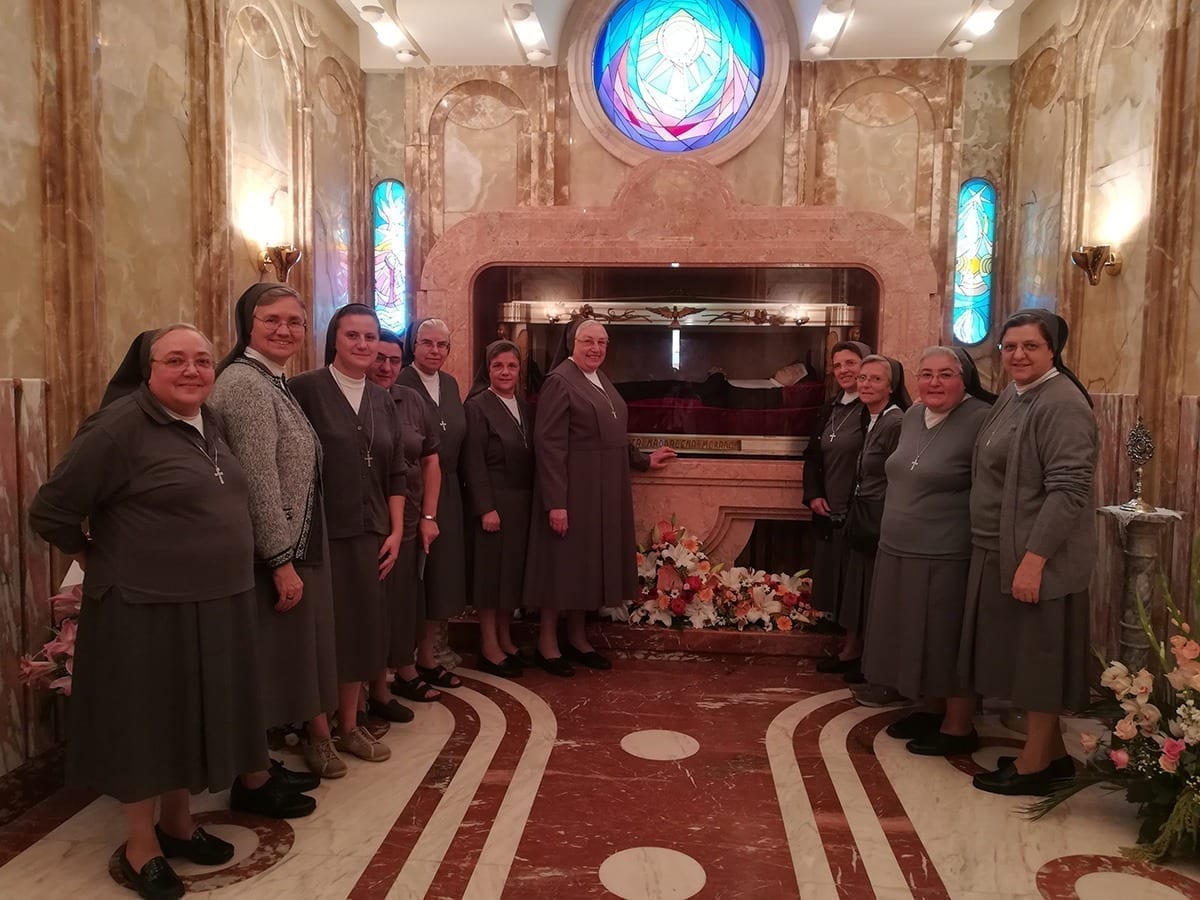Guwahati (India). On 8 December 2022, on the Solemnity of the Immaculate Conception, at St. Mary’s Convent in Guwahati, Mother of the Church Province (ING) officially opened the Centenary of the presence of the Daughters of Mary Help of Christians in North East India, with the hoisting of the Centenary flag and the dedication of the Shrine to St. Mary Domenica Mazzarello, Co-foundress of the FMA Institute.
The solemn Eucharistic concelebration was presided over by Msgr. John Moolachira, Archbishop of Guwahati, in the presence of Sr. Alphonsa Kurisingal, Provincial of the ING Province; Sr. Elizabeth George, Provincial of the Immaculate Heart of Mary Province (INS) and former Provincial of the Guwahati Province; 38 Superiors of the Communities of the ING Province, priests and religious, sisters, members of the Salesian Family, Educating Communities, young people, and benefactors.
After the Celebration, the Novices gave a brief presentation of the life of Mother Mazzarello, recalling the origins, the source of the missionary spirit, and the dynamism of the Institute’s charism. Singing the hymn “Oh qual sorte” in chorus, the FMA present expressed the joy of being a living monument of Don Bosco’s gratitude to Mary, like Mary Mazzarello, who lived the Founder’s project with creative fidelity. The family agape concluded the celebrations.
The six Italian pioneers: Sr. Innocenza Vallino, Animator of the group; Sr. Giulia Berra, Sr. Maria Bricarello, Sr. Clotilde Appiano, Sr. Antonietta Rosetti, and Sr. Cecilia Da Roit arrived in Guwahati on 8 December 1923. The great expansion in the North East had its humble beginnings in a dilapidated cottage in Pan Bazar, Guwahati. The initial mission was accompanied by various challenges and difficulties: personnel shortages, financial difficulties, adverse climatic conditions, persistent epidemics, inadequate infrastructure, extreme poverty, premature deaths, lack of medical facilities, and widespread illiteracy. Despite the obstacles and privations, the pioneers threw themselves wholeheartedly into the mission and, even before knowing well Assamese, English, and Hindi, they launched themselves into the apostolate in villages, in hospital ministry, in orphanages, in professional training schools, in language schools, and in the formation of former pupils. The missionaries had unlimited trust in Providence and possessed great courage in responding to the urgent needs of children and young people.
The small seed of the charism sown 100 years ago in the North-East has borne abundant fruit, giving life to three Provinces: Shillong, Calcutta, and Guwahati.
The Guwahati Province was canonically erected on 24 February 2000. Under the guidance of Sr. Lucy Rose Ozhukayil, the first Animator, and of the successive ones: Sr. Teresa Puthempurakel, Sr. Elizabeth George, and Sr. Alphonsa Kurisingal the vitality and works of the Province continue to grow. Today, the Province is made up of 38 communities in the four states of Assam, Arunachal Pradesh, Manipur, and Nagaland, with 291 sisters. The educational ministry for the growth and integral education of young people, women, and children ranges from formal to informal education: day and evening schools, colleges, vocational training centers, oratories and youth centers, hostels and boarding houses, a rehabilitation for drug addicts and HIV patients, homes for street children, literacy centers, IT centers, ministry of the family and prisons, apostolate in villages, pastoral services, self-help groups, and microcredit, are the main works and activities.
Thousands of girls who have passed through the educational institutions of the FMA stand out today in society as witnesses of the reliability of an integral educational method. The human values learned during their school years make them good leaven in society.
The inauguration of the Centenary Year with the dedication of the Shrine of St. Mary Domenica Mazzarello, on this 150th anniversary of the Foundation of the FMA Institute, is a Kairos for every FMA to continue living her own identity as an educator and evangelizer of the young like Mother Mazzarello, with renewed enthusiasm and educational passion, and to lead young men and women to be, as Don Bosco said, “good Christians and honest citizens” and to see them “happy in time and in eternity”.










